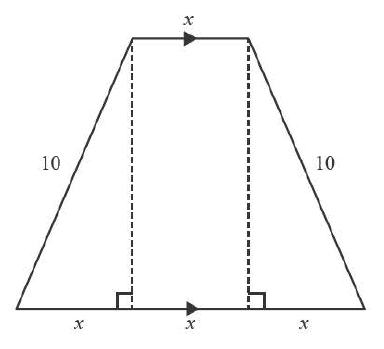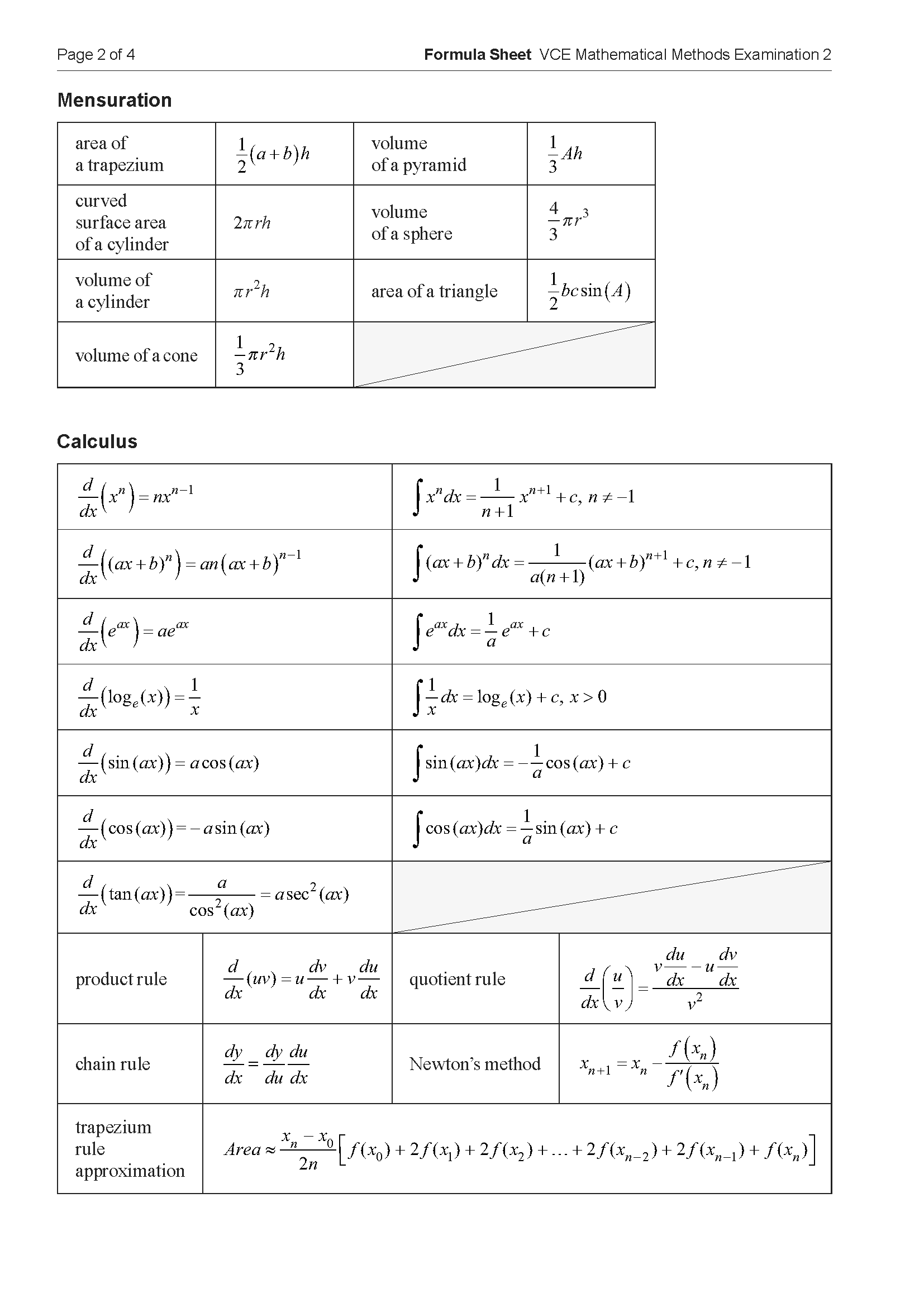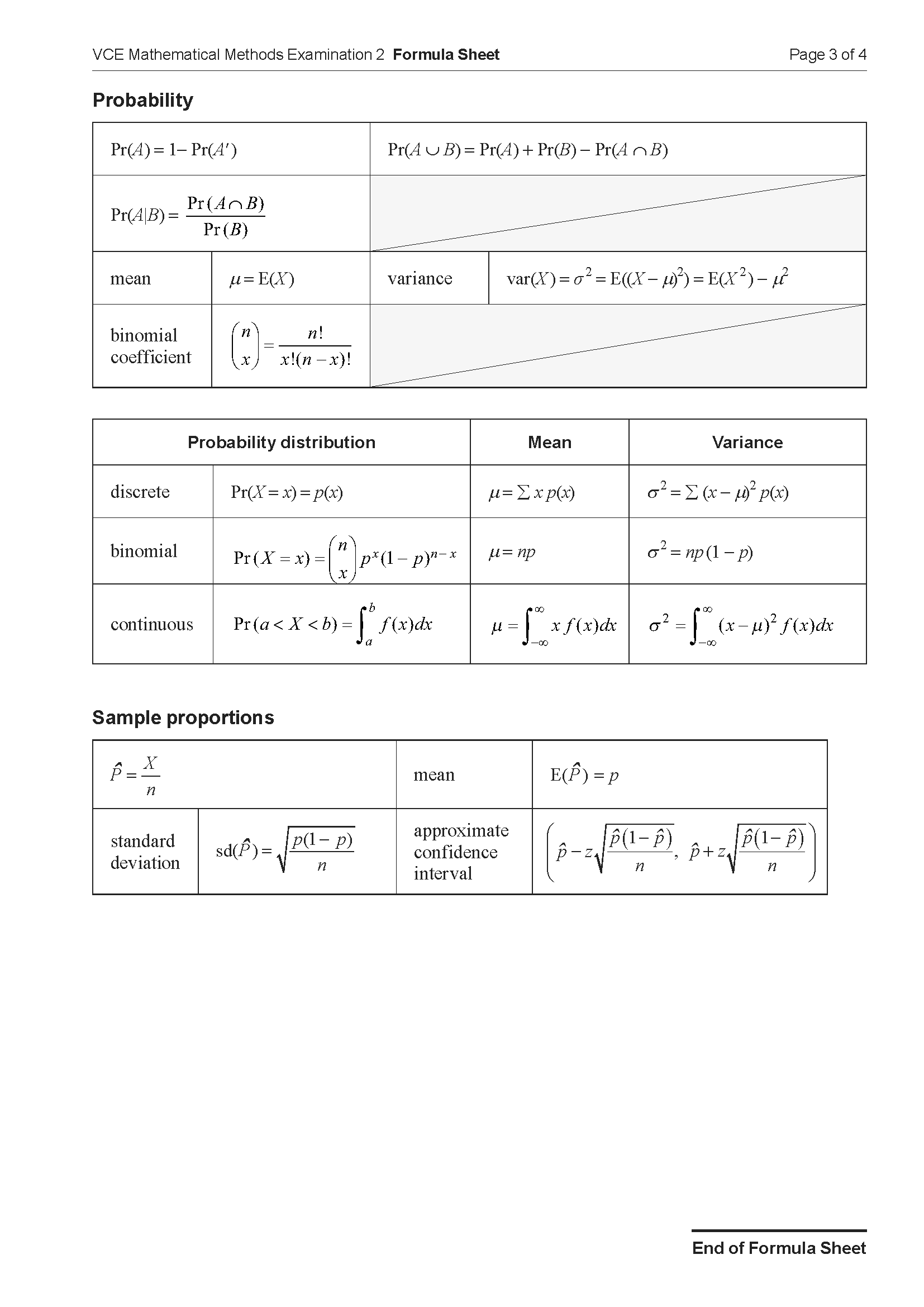VCE Maths Methods Differential Calculus Mini Test 1
Number of marks: 10
Reading time: 2 minutes
Writing time: 15 minutes
Section A – Calculator Allowed
Instructions
• Answer all questions in pencil on your Multiple-Choice Answer Sheet.
• Choose the response that is correct for the question.
• A correct answer scores 1; an incorrect answer scores 0.
• Marks will not be deducted for incorrect answers.
• No marks will be given if more than one answer is completed for any question.
• Unless otherwise indicated, the diagrams in this book are not drawn to scale.
Suppose a function \( f: [0, 5] \to \mathbb{R} \) and its derivative \( f': [0, 5] \to \mathbb{R} \) are defined and continuous on their domains.
If \( f'(2) < 0 \) and \( f'(4) > 0 \), which one of these statements must be true?
- A. f is strictly decreasing on [0, 2]
- B. f does not have an inverse function
- C. f is positive on [4, 5]
- D. f has a local minimum at x = 3
Suppose that a differentiable function \( f: \mathbb{R} \to \mathbb{R} \) and its derivative \( f' : \mathbb{R} \to \mathbb{R} \) satisfy \( f(4) = 25 \) and \( f'(4) = 15 \).
Determine the gradient of the tangent line to the graph of \( y = \sqrt{f(x)} \) at \( x = 4 \).
- A. \(\sqrt{15}\)
- B. \(\frac{1}{10}\)
- C. \(\frac{15}{2}\)
- D. \(\frac{3}{2}\)
Find the value of \( x \) which maximises the area of the trapezium shown below.

- A. 10
- B. 5\(\sqrt{2}\)
- C. 7
- D. \(\sqrt{10}\)
Which one of the following functions has a horizontal tangent at (0, 0)?
- A. \( y = x^{-1/3} \)
- B. \( y = x^{1/3} \)
- C. \( y = x^{2/3} \)
- D. \( y = x^{4/3} \)
- E. \( y = x^{3/4} \)
The points of inflection of the graph of \( y = 2 - \tan(\pi(x - \tfrac{1}{4})) \) are
- A. \((k + \tfrac{1}{4}, 2), k \in \mathbb{Z}\)
- B. \((k - \tfrac{1}{4}, 2), k \in \mathbb{Z}\)
- C. \((k + \tfrac{1}{4}, -2), k \in \mathbb{Z}\)
- D. \((k - \tfrac{3}{4}, -2), k \in \mathbb{Z}\)
Consider the function \( f : [-a\pi, a\pi] \to \mathbb{R} \), \( f(x) = \sin(ax) \), where \( a \) is a positive integer.
The number of local minima in the graph of \( y = f(x) \) is always equal to
- A. 2
- B. 4
- C. \( a \)
- D. \( 2a \)
- E. \( a^2 \)
Which one of the following functions is not continuous over the interval \( x \in [0, 5] \)?
- A. \( f(x) = \frac{1}{(x + 3)^2} \)
- B. \( f(x) = \sqrt{x + 3} \)
- C. \( f(x) = x^\frac{1}{3} \)
- D. \( f(x) = \tan\left(\frac{x}{3}\right) \)
- E. \( f(x) = \sin^2\left(\frac{x}{3}\right) \)
End of Section A
Section B – No Calculator
Instructions
• Answer all questions in the spaces provided.
• Write your responses in English.
• In questions where a numerical answer is required, an exact value must be given unless otherwise specified.
• In questions where more than one mark is available, appropriate working must be shown.
• Unless otherwise indicated, the diagrams in this book are not drawn to scale.
a. Let \( y = e^x \cos(3x) \).
Find \( \frac{dy}{dx} \). 1 mark
b. Let \( f(x) = \log_e(x^3 - 3x + 2) \). Find \( f'(3) \). 2 marks
End of examination questions
VCE is a registered trademark of the VCAA. The VCAA does not endorse or make any warranties regarding this study resource. Past VCE exams and related content can be accessed directly at www.vcaa.vic.edu.au

